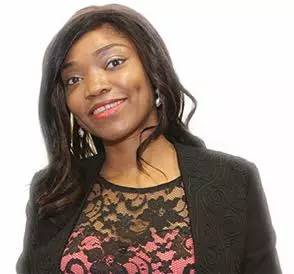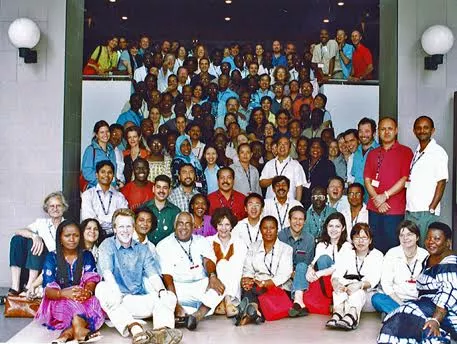Diversity is not enough
How to get there, then go further. By Amicky Carol Akiwumi and Ken Burnett.
“Our sector talks a good talk when it comes to championing diversity, but there is much more we should be doing to make this rhetoric a reality.”
Amanda Bringans, chair,
The Institute of Fundraising, 5th February 2018
For Britain’s charities, diversity is coming. Its tide is unstoppable, the only unknown is, how real will it be? The UK voluntary sector should – must – exemplify the very best diversity to be found anywhere. It must commit, heart and soul, to build real equity, equality and inclusion into its DNA. The following comments from the side-lines are simply observations from two practitioners of what we think is needed to make the coming changes broad, deep and lasting.
On the face of it, we two – Carol and Ken – are very different. We have different genders, origins, ethnicity and backgrounds. Yet we’ve such a lot in common and more that’s complementary. Passionately committed to the charity sector, we’re both enthusiastic advocates of the transformational power of voluntary action, both optimistic believers that our sector should lead the way in fairness, inclusion, equality and balance, especially in the areas of gender, ethnicity and disability, where we are so glaringly falling short. This for practical reasons more than ideology – neither of us is much interested in political correctness. We think if we work together on the diversity issue, we’ll be greater than the sum of our parts, because our distinctive differences combined with common beliefs and characteristics will help us get a better handle on what needs to be done.
That’s the beauty of diversity. So we’re both hugely encouraged by and supportive of the Institute of Fundraising’s initiative to appoint an expert panel to advise on the issue of diversity in the not-for-profit (charity) sector. But we’re concerned at the slow pace of change and the limited success we’ve seen so far. So as old friends we’ve come together to offer our take on what we think could accelerate the pace and impact of change. Having just celebrated the centenary of some women being given the vote, we don’t want to have to wait another 100 years before true diversity can work its magic in our wonderful charity sector, before it can transform into the shining beacon of inclusivity that everyone has the right to expect.
Three things seem to us to need to change:
i. Charity employers have to start investing in diversity. Now.
Charities traditionally run for the hills whenever the ‘I’ word is mentioned. Just say ‘investment’ and you can hear the people shudder.
Not so long ago most international NGOs would have shuddered at the notion of spending to bring several (ie 50+ per cent) of their volunteer board members half-way across the world to attend quarterly board meetings. Yet relative to the gains, the necessary investment is small. And it evidently enriches the top decision-making in many organisations, inspiring staff and supporters. Real diversity does that.
False economies constantly blight our sector. Diversity is one area where we must not under-invest in awareness, training and staff development (there are others, as recent events have shown). Charities can’t think, ‘we cannot afford this’. You have to think, ‘we can’t afford not to do this and do it right.’
ii. Everyone must actively agitate for diversity. Constantly.
Silence is not an option. In the five years that Carol chaired Black Fundraisers UK, she was encouraged by support from many unexpected quarters, but equally baffled by those who could speak out but choose not to, or who promised to do something about diversity, then didn’t. This has to change. Diversity has to be high on everyone’s agenda. If a senior management team, trustee board, or a charity workforce is not diverse it must be exposed, called out for what it is. And steps must be seen to be taken to bring about change.
Refusing to speak on panels that are not diverse is a great stance already being adopted by some campaigners. Identifying and eliminating processes and practices that discourage diversity of thought, expression and collaboration goes even further. As Desmond Tutu says: ‘There comes a point where we need to stop just pulling people out of the river. We need to go upstream and find out why they’re falling in’.
Advertisement
iii. We have to be prepared to discriminate positively
Building diversity starts on a steeply uneven playing field. As Carol puts it, “No matter how awesome your arms are, having four of them and no legs is not helpful. The weird thing is, if you’ve never had legs, you may not even know what you’re missing and given the option you’d naturally opt for more arms.”
A picture of diversity: ActionAid’s first international meeting in 1982 boasted just 11 senior staff, all white males, all relatively well-to-do, mostly from the south of England. Twenty-four years later ActionAid’s strategy meeting had 140 participants from 40 countries, 50 per cent women, mostly Africans and Asians. It also had a much higher level of debate. Seated front right is Dr Noreen Kaleeba, international board chair. Somewhere in there, at the back, is Ken Burnett, then a member of the new international board. The story’s here.
Charity boards and senior management teams exemplify this. ‘Ah, but…’, we constantly hear good people say, ‘we’re fully committed to diversity and gender balance, but we must always select the best candidate for the job.’
If that’s your attitude, true diversity will never come. The thing about diversity is that you have to work at it, constantly, vigorously, uncompromisingly. In building ActionAid’s new board this realisation took some time, but when it came, it was a transformation. If we wanted gender balance we had to positively seek out and recruit women. There’s no shortage of good women, but they may need finding, encouraging and developing. Yes it needs work, but it’s well worth it.
At ActionAid, Ken was the last in a long, unbroken line of white middle-class relatively affluent male chairs of trustees. Ken’s successor as chair was an African woman. This revolution at their top table was no accident, ActionAid set out deliberately to achieve this diversity and accepted no compromise. So, it broke the mould, in the process recruiting the best chair it could have had at the time. One of ActionAid’s new trustees, from Thailand, commented that ActionAid’s diverse board embodied all the flavours and sensations of an Asian street market, with all the colours of the rainbow. The result was much better governance and an inspirational example to donors, beneficiaries and all staff worldwide.
The charity sector needs to up its game if it’s to get this right.
Our sector’s diversity deficit is ambiguity around leadership and the lack of a unified BADG – a Big Audacious Diversity Goal. That goal should define who will publicly lead the way and set examples, such as making a pledge to have 50/50 male/female representation on boards and senior leadership teams as standard by 2020. And that the ethnic representation should reflect the population and/or ratio of beneficiaries. We’d like to see the Institute of Fundraising and the new Fundraising Regulator supporting charity leadership to develop meaningful and effective long-term strategies to attract, develop and retain more diverse individuals on their fundraising teams. To do this, the culture of these organisations must proactively address bias, prejudice and discrimination in relation to the implementation of all their policies and practices. Recruitment and professional development programmes need to be underpinned by structures and measures that support equity and value individuals from all backgrounds. Alongside that, they should set SMART goals (specific, measurable, achievable, relevant and time-bound), then monitor and report against them, regularly and publicly.
The road to diversity can appear uncomfortable and daunting but if you look hard enough it is intensely optimistic. We live in a world that expects no less, we work in a sector that advocates much more and the business imperative offers us the best chance for survival, innovation and growth. The prize is a society we can all believe in and be part of. That has to be worth the effort, a challenge we can all rise to. Diversity is a business success imperative. Let’s make it so.
© 2018 Amicky Carol Akiwumi and Ken Burnett.

Amicky Carol Akiwumi
Amicky Carol Akiwumi is the CEO of Rent-an-Angel, a creative fundraising and training consultancy. She is a fellow and trustee of the Institute of Fundraising, the visionary and director of the IOF Black Fundraisers UK (BF-UK) AVOCADO Project. Carol is also an entrepreneur, inspirational speaker and founder of Money4Youth, a training programme that equips children and young people with life skills to handle money, manage finances and budget effectively.

Ken Burnett
Ken Burnett is also a fundraiser and a fellow of the IoF. He’s an author, founder of SOFII.org, co-founder of the Commission on the Donor Experience, independent trustee of the UK Disasters Emergency Committee and former chair of trustees of ActionAid.
This article also appears on Carol’s website and on Ken Burnett’s website.
Some related earlier articles
• ActionAid’s journey to diversity. (Ken)
• Directors must bring fundraising’s diversity issues to the fore. (Carol)
• The time is now for fundraising diversity. (Carol)




